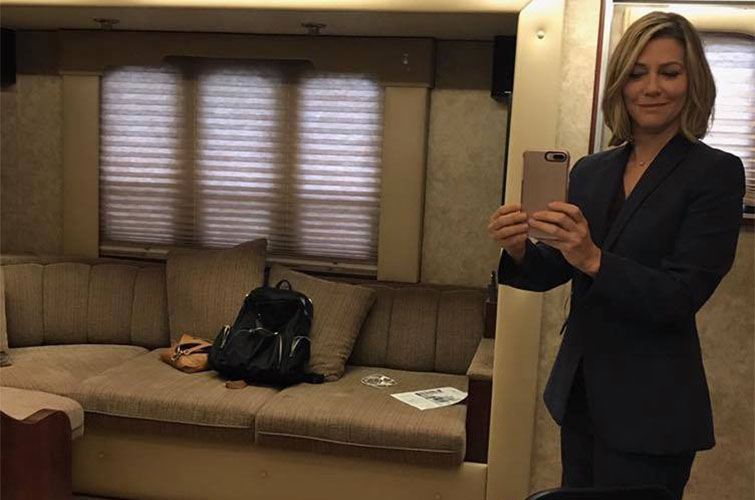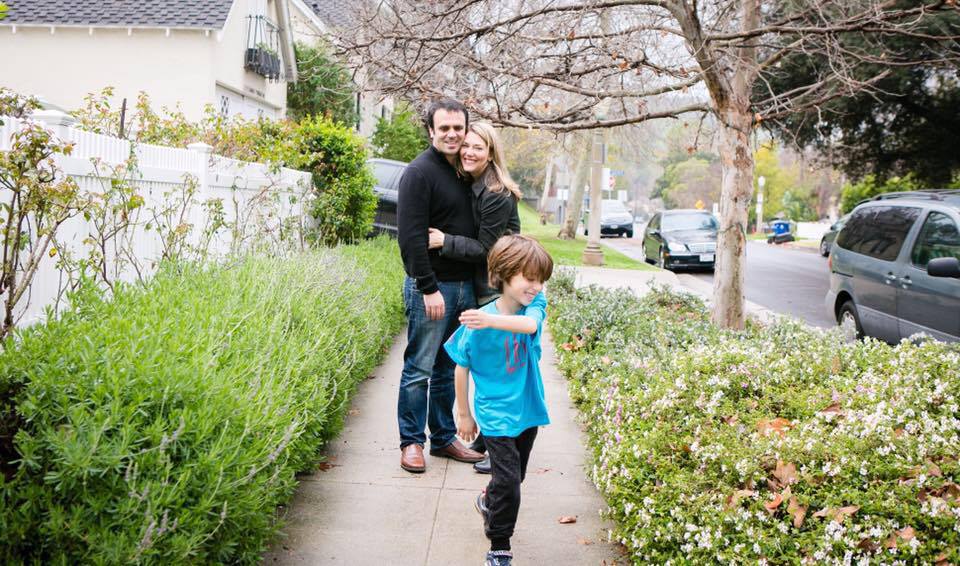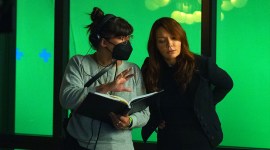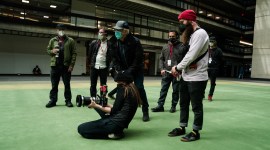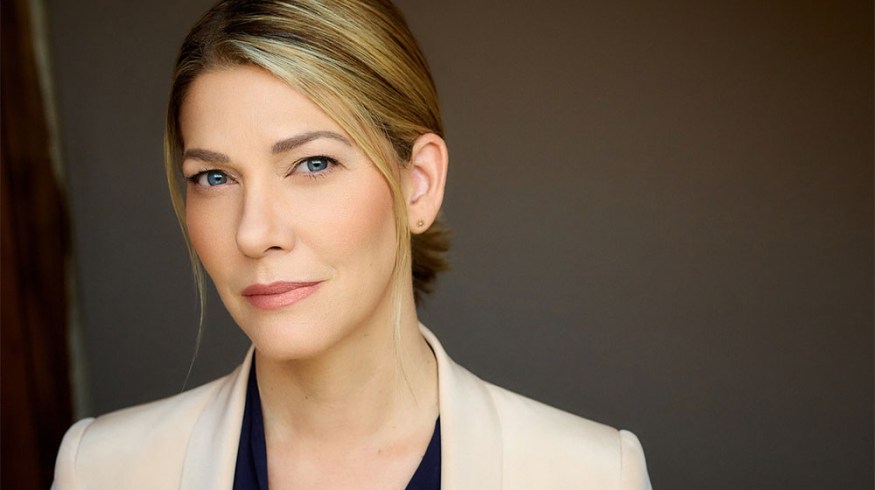
Interview: Actor Amy Stewart on the Work-Life Balancing Act
We sat down with actor Amy Stewart to discuss how you can stay creative and continue supporting yourself in between industry gigs.
Cover image via IMDB.
We all know this business is a marathon not a sprint, and lengthy careers have flush times and dry times — and everything in between. Then add a successful, happy, and engaged personal life, and you really get a tightwire act. In this interview, prolific television actor Amy Stewart shares some insights with us on how she’s achieved work-life balance.
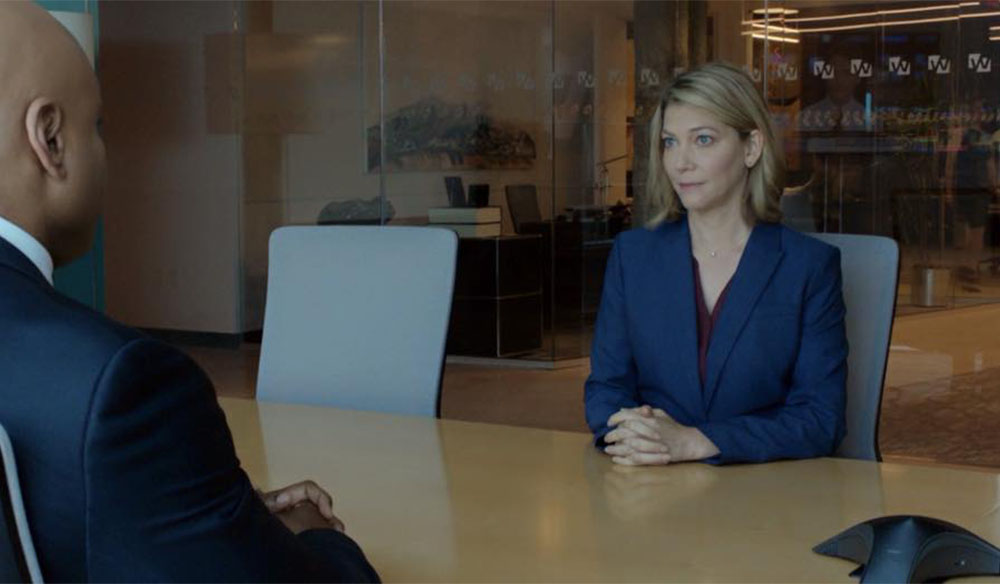
Image via NCIS: Los Angeles (CBS).
PremiumBeat: You started out acting in theater as a kid and working commercially as a teen. First question: why haven’t you robbed a video store? Seriously though — as we know, there are a lot of predators around young women in this industry. What kept you safe, sane, and focused?
Amy Stewart: It’s true. I have not robbed a video store, and now that Blockbuster doesn’t exist anymore, there goes my bucket list. Honestly, what kept me grounded was that I knew no matter what, I was going to go to college. Some of my peers at the time that I was acting with did not choose that route, and now a handful of them are super famous and doing great. But I had an agreement with my parents that college wasn’t optional — nor did I want it to be. I also decided that if I was going away to school, I should study something other than theater since I had spent so much of my childhood immersed in it. It was good to take four years to be around young people who weren’t trying to make it in Hollywood, but were really interested in a whole variety of subjects. It opened my mind to a lot more than just the world of 90210. I studied my tail off in school in classes that had nothing to do with acting. In the long run, I think that made me a better actress.
As far as “predators,” there are different kinds. I would say the worst I encountered were people (male and female) who touted themselves as managers and agents for young people, and really had no business doing so. Some of them wanted a “fee for services,” which I knew was illegal so I walked away. There are also certain acting teachers who have been known to create an almost cult-like environment where they present themselves as a “guru” and your only ticket to success. Thankfully, I had my parent’s skepticism in my DNA, and they always told me to beware of any “group think” environment where people give their power away to someone who tells them they hold the key to their careers. So I learned those lessons as well.
Lastly, without going into a ton of detail, as a teenager I hung out with a group of fellow young actors who did fall victim to a sexual predator who claimed to be an acting teacher. I don’t know how I managed to get out unscathed . . . I wasn’t aware of a lot of it because I wasn’t interested in those “parties” and I was a pretty cautious kid. I was also a pretty anxious kid, so the idea of doing drugs didn’t intrigue me, it scared me. So thankfully I avoided the situations that I later learned some of the other kids did not. I had no idea at the time because I wasn’t super adventurous. But I know a lot of damage was done to the others. I think that there is a lot more consciousness around that type of thing now. I had no idea about pedophilia back then, but now it’s a common word, and kids and parents are more educated.
By my 20s all that was behind me, and I was just all about the work. I found the best teachers and spent years just working on being a better actress. I wasn’t good at the schmoozing part, and I’m sure that might have helped me in some ways . . . but I always fell back on my work, and that is still my focus to this very day.

Image via Mental (Fox).
PB: When I look at your credits in IMDB, you work. A lot. But, I’m sure it doesn’t always feel that way to you. What do you do for yourself creatively between gigs to keep your head in the craft and your heart uplifted?
AS: I’m always in an acting class. No matter what. If I’m working, if I’m not working . . . I find a class where I feel like I can stretch and grow and challenge myself and where I can try something out and fail gloriously without getting my ego all caught up in it. If I wasn’t in a class I’d go crazy. Also, I make sure I “have a life.” I have to have things I care about besides acting, or else it all becomes too precious. My family is my life, first and foremost. Being a parent is a huge responsibility and a beautiful rollercoaster of emotions. And my child will only be this wide-eyed and innocent for so long — I’m soaking up every moment I can.
PB: So much of your episodic TV work has been dramatic. Not just drama, but honestly trauma. You’ve done some very compelling guest appearances. How difficult is it to come on to a set with established actors and crew and not only constantly be the new girl but also be expected to be open, vulnerable, and truthful? What’s your process?
AS: I really don’t know how that happened to be my genre. Honestly, I have always been drawn to comedy and comedy was actually what I used to teach the most. But once I did my first two big roles on ER and The Practice and became known as someone who can “go there” with big emotional stuff, well . . . casting directors just started to think of me as one of those actors who can do that. I got a “reputation,” I guess. The truth is, I’m a very sensitive and emotional person, and I’m not afraid to show that. In truth, I don’t really have a choice, because big feelings reside in me, and I have learned how to access them.
Most of the other actors on set are really respectful and occasionally deferential to an actor who has to do really hard, gut-wrenching work. And most directors are too. Every once in awhile, you step onto a rowdy set, and everyone is making jokes or chatting away between takes, and I’m supposed to be falling apart about someone who died, or recovering from a crazy assault, and I do think “what assholes.” Because they are phoning it in now that it’s season 8 for them. Sometimes I will speak up and ask the AD for quiet, or sometimes I just put on my iPod, go to my chair and tune everyone out with my music until they need me again. I think if I were still new at this it would be more intimidating. So I would make sure I was ultra prepared and had worked with a coach who knew how to get me locked, loaded, and prepared for anything that came my way. Because in the end, they want us to do well. We make them look good and the show look good if we are able to do our best work.
PB: Being an actor seems to be always being accessible since you never know when that audition or opportunity will come. How has that affected your personal life? Did you ever consider not taking a vacation or going to a family affair because you were worried about being unavailable for work?
AS: I’m sure you’ve heard the expression “book a vacation, book a job.” It sucks. You can go months with nothing, and you can get a huge callback two days before your family reunion in upstate New York. That was a mess. Or almost missing a wedding that my husband was in. We have had to scramble several times throughout the years to deal with this reality. But you have to have a life. I’ve been away before and been told that if I want to be seen for a role I need to fly back early. Anytime I did that, I didn’t get the part. When I said “no” it was amazing how often the opportunity would somehow come around later — or a different, better one.
Now so many auditions are self-taped it isn’t as risky to leave town. But, man, I swear my husband would say there have been numerous occasions when we have a trip all planned out and I get that “you booked it” call and I’m both happy and cringing. Thankfully my reps remarkably understand that I have a life. And they also know that if it is important, I’ll figure it out.
PB: We hear the cliché of the actor/waiter. But you’ve managed to find ways to earn money when you are not acting that are closer to your primary skill set and spring from your life and needs. You coach actors and you thought outside of the (juice) box by creating a consumer lemonade product. How did that happen?
AS: Well, I’ve been fortunate enough to have some acting teachers ask me to teach and coach other actors through their studios. And doing audition or dialogue coaching one-on-one has been one of my favorite things to do because you learn so much when you teach. You start to see the habits or obstacles that are getting in someone’s way, and watching them take my notes and break through to an awesome performance is just as gratifying to me as if it were my own. And I can apply a lot of what I learn to my own work.
I also was inspired to launch a kid’s beverage, Leaf and Love, with a couple of friends a few years ago, and I found that it worked a whole other muscle in my brain. It made me realize that acting wasn’t the only thing I was good at. Leading a consumer products company with no real corporate experience was an amazing challenge, and I found that when I had to get up in front of a room full of “suits,” I had no problem presenting or pitching because of my background. So that part of it was fun.
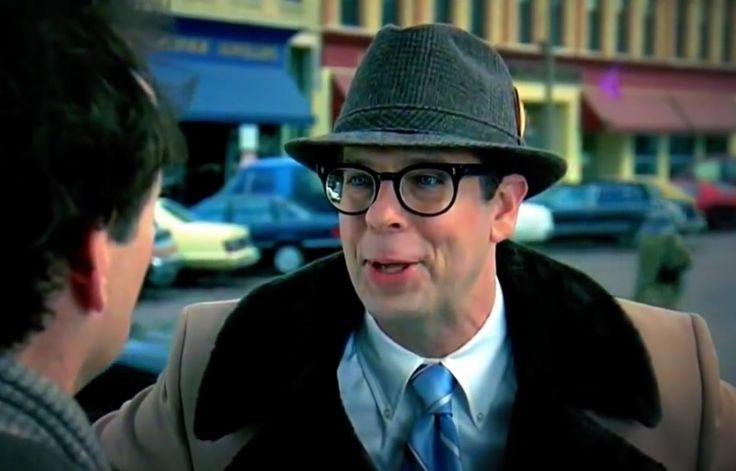
Stephen Tobolowsky, Groundhog Day (Columbia Pictures).
PB: Finally, as someone who has had success (and probably disappointment as well), what advice would you have for the creative industry folks in surviving the ups and downs, both creatively and financially? Does any particular story come to mind that you think encapsulates this business in a hopeful or inspiring way?
AS: I was lucky enough to have the actor Stephen Tobolowsky come and guest-teach a class I’m taking. And he joked a lot about all the “overnight successes” we believe we see in Hollywood. And that most of them are bullshit. He said take an actor you like, say, Laura Linney, . . . and scroll down her credits to her very first one. And you can rest assured it was not the starring role in a major motion picture. He said there are a lot of “one-hit wonders” out there who might have made it very big playing one role in something very popular quite early in their careers, and now it’s not so easy for them to strike that gold again. He reminded us that there is something to be said for paying your dues. There is no shame in it.
If you’re miserable as a waiter and are waiting for your big break to save you from your life that you hate, chances are you’re going to have a hard time. But if you can find joy, support, and camaraderie in the people around you, do your day job with integrity and a sense of pride, find ways to fill your soul so you aren’t waiting for an acting or writing job to validate your worth as a human being, but you just focus on showing up and taking your space on the stage (or in the room) and for those few minutes, you are that role, you are your unique version of that role, you can walk away feeling good. You didn’t just “have an audition,” you delivered a performance. Keep doing that, keep studying, stay creative as much as possible in your life . . . it pays off. Like you said — it is a marathon. Not a sprint. And maybe read The Alchemist. I’m about to re-read it again myself.
Looking for more industry interviews? Check these out.
- Interview: Producer Toby Halbrooks Shares Indie Film Insights
- Interview: Animated Advice from Films to Comics with David Avallone
- Filmmaker Wendy McColm on the Meisner Technique and her Feature BIrds Without Feathers
- Round Table: Scream Queens on What Every Horror Director Needs to Know
- Interview: Behind the Scenes with Producer Bonnie Curtis



